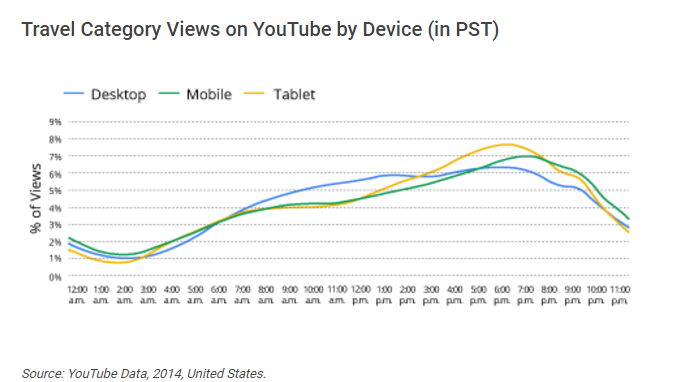We need to talk about search engine optimisation, or SEO.
It’s an area that can seem pretty murky compared to, say, running a voucher campaign or taking great pictures of your hotel, but it’s a key part of your hotel’s online presence. Good SEO is how you get organic traffic, and it’s how you get visitors on your hotel website who are actually going to book direct.
Why is it so complicated? When you hear statistics like “Google’s search engine algorithm changes between 500-600 times a year,” it’s easy to understand why SEO best practices aren’t a constant.
SEO tactics that were capable of soaring search traffic in the past are redundant today. This happens for a lot of reasons: Google changes their algorithm, travellers change their booking patterns online, and the amount of content on the web is just exponentially bigger than it used to be.
On a happier note, despite SEO’s changing nature, search engine optimisation can still get your hotel more bookings – and it’s necessary for a healthy website. If you don’t have good SEO practices in place, it’s going to be really, really difficult for your potential guests to find you online.
An average of 12 billion web searches are conducted in the U.S. alone each month. That’s a lot of potential guests, don’t you think?
That’s why we want to give hoteliers four strategies to help your SEO today. These strategies will let your hotel rank better on search engine results pages, and attract:
- higher quality traffic
- stronger leads
- more bookings
What will the key takeaways be from this article?
- Take advantage of video: Google has started to award more attention to search results that include videos, which means your hotel can boost its rankings on search result pages with a few quality videos.
- Use SEO-friendly URLs: all lowercase, dashes between words instead of underscores, and using the keywords you want to rank for in the URL.
- Try the WASP method: If your hotel creates content, format it in an SEO friendly way and send it to local travel blogs and online papers to get inbound links, which will boost your rank.
- Optimise for the shift to mobile: make your website mobile-friendly, or you’ll be heavily penalised in mobile search results! Also, keep in mind that it’s even more important to rank highly on mobile search pages, since the user has to scroll more to see each result.
Ready? Here are the four strategies in full, for your hotel to take advantage of:
1. Take Advantage of the Power of Video
(88% of YouTube travel searches focus on destinations, attractions/points of interest or general travel ideas)
Google estimates that 106 million of Youtube’s unique monthly visitors are travellers. 64% of those travellers watch travel related videos when thinking about going on holiday; 37% watch while actively choosing a web site to book on.
A recent report by Marketing Land even states that videos make up 62% of all Google searches universally. Why is this important?
Google has started to award more attention to search results that include videos, which is great news for hoteliers taking advantage it.
Use your guest persona to brainstorm video content. Aim to create content that helps your guests instead of shamelessly promoting yourself. Some potential video ideas are:
- A tour of attractions near your hotel
- Fun, quirky challenges that guests can get your staff to do
- Entertaining interviews with guests
- Quick recordings of activities that guests might enjoy during their stay
It doesn’t need to be complicated – hire a videographer and spend a few hours showing off the best parts of your hotel with some of your most engaging staff members, have the video edited, and you’re in business!
2. Use SEO-Friendly URLs
What does that mean? In practice, it means using lowercase letters, dashes instead of underscores ( these – , not these _), and using the keywords for your hotel in the URLs.
Having the right URLs is an easy way to make yourself more Google-friendly: you’re optimizing all of your website’s pages at a basic level. Make sure all your web pages have an SEO-friendly URL that summarises what the page is about in a few words.
What kind of keywords will give you the traffic boosts you’re looking for? Try to be specific. Instead of “hotels in Ireland,” try “honeymoon hotel packages Killarney.”
So if “honeymoon hotel packages Killarney” is a keyword you want to rank for, this is what your URL might look like “http:// hotelname.com/hotel-honeymoon-packages-killarney”.
See? Simple.
3. WASP Method of White Hat SEO
This tactic requires you to publish content. If you’re challenged for content ideas, here’s some easy ones to get started with:
- Photography of your hotel and nearby locations with sparkling copy
- Customer testimonials
- Answering common guest questions
- Describing local culture
- Promotions or events your hotel is running
- Travel tips
- Local guides/resources
- Useful language phrases, if you get a lot of guests who are non-native speakers
- Behind the scenes
- Interesting facts about your hotel or the local area
Write content that will appeal to local journalists and travel writers who will promote your stuff. They have the power to instantly boost exposure and traffic to your hotel website. Ideally, you will know who you will promote to before you create. This will allow you to make those little tweaks that make the piece more appealing to who you’re writing for.
Remember: quality is key! For this strategy to work, your content must be better than the content of your competitor set. Ask yourself: can you add better information? Can your hotel offer a unique twist on the subject? Here’s 9 tips for creating great content to inspire you.
Add social sharing options. Compel people to share and link to your content by adding share buttons. Use social share buttons on your page, embed tweetable quotes, and offer content upgrades in return for a shares etc. Make it easy as possible to spread word about your content.
Set up on-page SEO:
- Your target keyword should be in the URL. Keep it short! Google prefers short URLs.
- Drop your target keyword in the first 100 words of your content. Google puts more weight on pages that include pages that place keywords closer to the top.
Promote:
- Email those people who will share your content. You have created a piece of content that is better than what these travel writers have already linked to, and it’s on a subject they’ve expressed interest in, so there’s a high chance of them wanting to link to it.
This is a job for your marketing team, and as you might have guessed, getting it set up can take a little time. Once your content is up and running, though, you’ll have those SEO-friendly links pouring in, and your hotel website will continue to climb in the ranks.
4. Optimize For the Shift to Mobile
The rise of mobile is well-known, and it’s just as important as everyone’s saying it is. Net Affinity’s own data shows that 1 in 5 bookings were made on mobile phones last year, and 37% of all bookings were on mobile and tablet combined. That’s huge.
User experience for mobile searchers weighs heavier on the SEO scales because of large-scale trends like this, so your website needs to be mobile friendly. Make sure that not only can people book on your mobile website, they can find your website when they Google for a hotel on their phones.
To optimize your SEO for mobile:
- Use a responsive design
- Ensure that navigation for mobile is smooth as possible
- Have a device-agnostic approach
Conclusion
The rules of SEO are simple and finite, even though there’s often changes in which part is more important to focus on.
These best practices are up to date, simple enough to check on or create with relative ease and, best of all, these strategies will help boost the visibility of your hotel on Google. That means you’ll get more traffic for the kind of searches you really want to rank for, and the people that come to your site will get exactly what they were looking for.
If that doesn’t sound like a recipe for building direct bookings, we don’t know what does!






